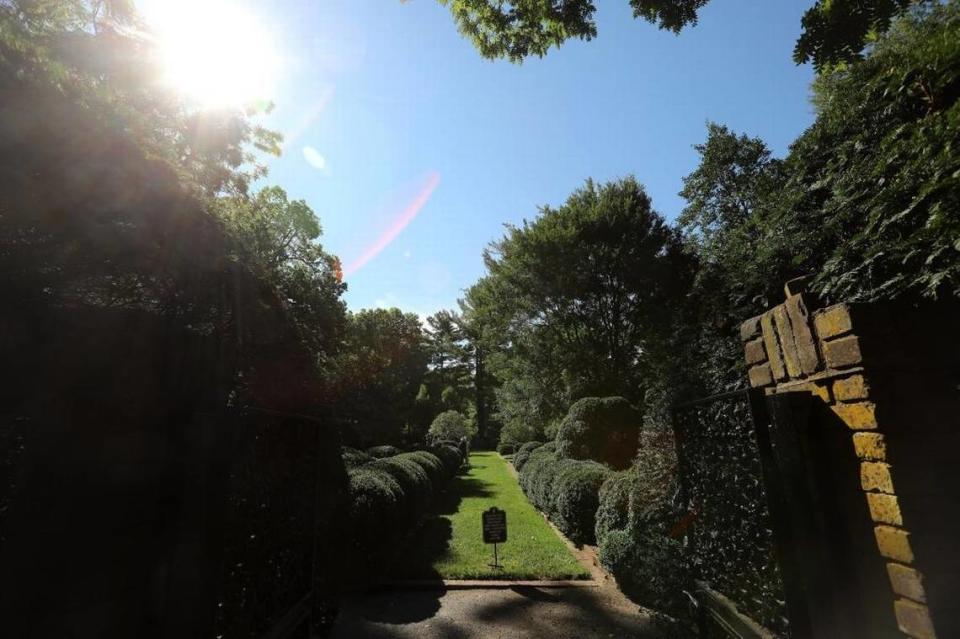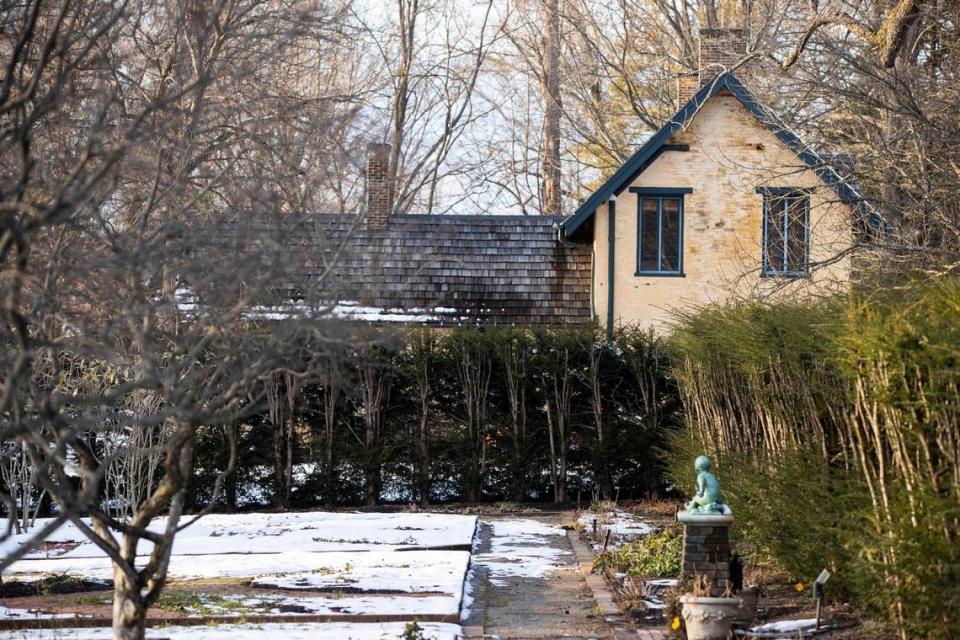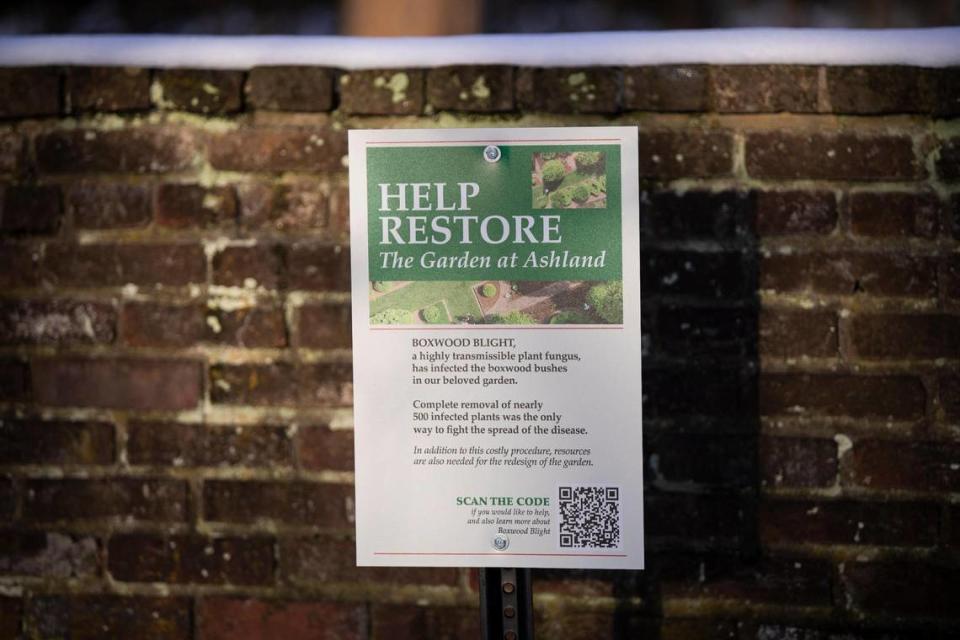‘It was very sad.’ Why nearly 500 bushes were removed from garden at Henry Clay Estate.
Visitors to Ashland, the Henry Clay Estate over the past several months might have found themselves feeling a bit like Mary Lennox, the little girl who finds herself locked out of a lovely place during a cold, dark season in Frances Hodgson Burnett’s The Secret Garden.
The wrought iron gate to the formal garden at Ashland is locked, and it has been since mid-October. Inside, the once lush, carefully manicured space is looking much more bare.
Benny Bell Williams, president of the Garden Club of Lexington, which maintains the garden, said the closing was necessary because the boxwood bushes became infected with boxwood blight, an easily-spread plant disease that causes the shrubbery to lose its leaves and can kill American and English boxwoods within one growing season.
She said over half the boxwoods in the garden had become infected, and after consulting with horticultural experts, the club determined that the best solution was to remove all 483 bushes. Some of them were over 50 years old, she said.

“It was very sad, and it was a hard decision to make,” Williams said in an interview.
She said that while “aggressive spraying” can help suppress the disease in some cases, that was not feasible in this instance.
“The constant preventative spraying of strong chemicals was not a sound option for this garden,” Williams said in a news release. “When considering the risks such actions cause to the environment as well as the toxic exposure to visitors and wildlife, it was clear that a best practices approach was the only way to proceed.”

The boxwoods were removed, bagged and destroyed to help prevent further spread of the fungal infection.
The Garden Club of Lexington created the parterre garden at Ashland in 1950, when the property was set up as a museum. It was designed by landscape architect Henry Fletcher Kenney.
Now that the boxwoods are gone, Williams said the club is beginning the process of considering what to do next.
She said they’ll likely watch the garden during all four seasons to see what is still growing there and consult with other experts to get ideas before buying new plants.
Williams said in the news release that they also want to review Kenney’s original plans “to discover the intent of his design.”
“The bones of the garden are really beautiful,” Williams said.

The garden club is raising money to help fund the renovation.
“There’s been so much interest in it from the community,” Williams said.
Early on in the pandemic, the grounds of the Henry Clay estate became “one of the bright spots” in Lexington, Williams said, as people took to the outdoors because indoor public spaces were closed.
Now that the formal garden is closed and many of its plants removed, Williams said many people have wondered why.
“It’s become important to a lot of people,” she said.


